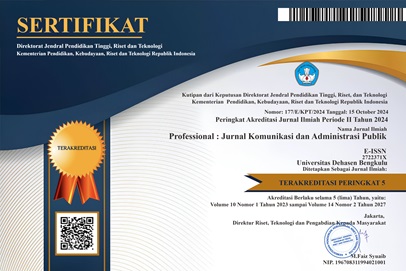Implementasi Desentralisasi Dan Dampaknya Terhadap Pemberdayaan Masyarakat Desa Mandiri Di Indonesia
Abstract
Decentralization in Indonesia has become one of the main strategies in increasing community empowerment, especially in independent villages. The background to this research focuses on how greater allocation of authority and responsibility to village governments can encourage active community participation in development. This research uses a literature study method to analyze various community empowerment initiatives that emerged as a result of decentralization, taking into account the factors that influence the effectiveness of their implementation. The research results show that decentralization has had a positive impact on empowering village communities. Training programs and collaboration with related institutions, as well as the management of Village-Owned Enterprises, are several examples of initiatives that have succeeded in increasing community access to economic and social opportunities. Although there are still challenges in the implementation process, the research results show that decentralization can be an effective instrument in creating independent and sustainable villages.
Downloads
Copyright (c) 2024 Mutia Kardina, Aldri Frinaldi, Lince Magriasti, Hendra Naldi

This work is licensed under a Creative Commons Attribution-ShareAlike 4.0 International License.





